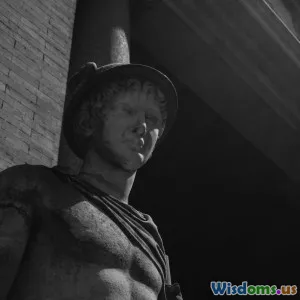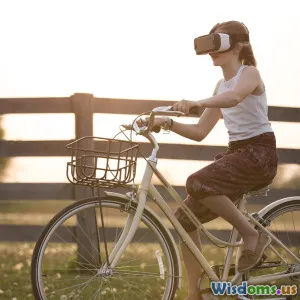
The Evolution of Robots in Culture
5 min read Explore how robots have shaped and reflected cultural ideas in science fiction and society over the decades. (0 Reviews)
The Evolution of Robots in Culture
Robots have fascinated humanity for centuries, embodying our hopes, fears, and visions of the future. This article explores how robots have evolved in culture, particularly through science fiction, reflecting our societal values and technological aspirations.
1. Early Representations of Robots
The concept of robots is not new. It dates back to ancient myths and stories. One of the earliest representations can be found in Greek mythology with Talos, a giant automaton that protected Crete. However, it wasn't until the 20th century that the modern idea of robots emerged, largely influenced by literature.
1.1 The Word 'Robot'
The term 'robot' was first introduced by Czech writer Karel Čapek in his 1920 play, R.U.R. (Rossum's Universal Robots). The play depicted artificial beings manufactured to serve humans, which sparked discussions about the implications of creating life-like machines. Čapek's robots, however, were not machines in the traditional sense but rather synthetic organic beings, a concept that challenged the boundaries of humanity.
2. The Golden Age of Science Fiction
The mid-20th century marked a golden age for science fiction, which significantly shaped public perception of robots. Authors like Isaac Asimov wrote extensively about robots, notably in his collection I, Robot, where he introduced the famous Three Laws of Robotics. These laws provided a moral framework for the interaction between humans and robots, emphasizing the ethical considerations of AI and automation.
2.1 Robots in Film
Films have played a crucial role in popularizing robots in culture. Classics like Metropolis (1927) featured the iconic robot Maria, a symbol of both fear and fascination. Later films, such as Star Wars with the character R2-D2 and Blade Runner exploring the concept of artificial intelligence and its implications on society, further cemented robots as cultural icons.
3. Robots in Contemporary Culture
As technology advanced, so did the representation of robots in culture. Modern media portrays robots in diverse roles, from helpful companions in Big Hero 6 to existential threats in Ex Machina. These narratives reflect our evolving relationship with technology, highlighting themes of dependency, ethics, and identity.
3.1 Robots in Everyday Life
Today, robots are not just confined to the realm of fiction. They have become an integral part of our daily lives, with automation transforming industries, healthcare, and even personal assistance. Robots like Roomba and advanced AI like Siri and Alexa exemplify how these machines have transitioned from fiction to reality, making our lives more convenient.
4. Future Implications
Looking ahead, the evolution of robots in culture raises several questions. As AI continues to improve, how will our perception of robots change? Will they become more human-like, or will we prefer them as tools? The narratives we create around robots will likely influence societal attitudes and policies regarding technology.
4.1 Ethical Considerations
With the rise of advanced robotics and AI, ethical considerations are paramount. As we integrate robots into society, issues such as privacy, employment, and moral responsibility will need to be addressed. Sci-fi narratives often explore these dilemmas, providing a lens through which we can examine our future with technology.
Conclusion
The evolution of robots in culture reflects not only technological advancements but also our hopes, fears, and ethical dilemmas. As we look to the future, it is essential to consider how the narratives we create today will shape our relationship with robots and the role they will play in our lives. Engaging with these stories can provide valuable insights into the implications of our technological choices, guiding us toward a future where robots enhance our lives rather than replace our humanity.
Rate the Post
User Reviews
Popular Posts





















